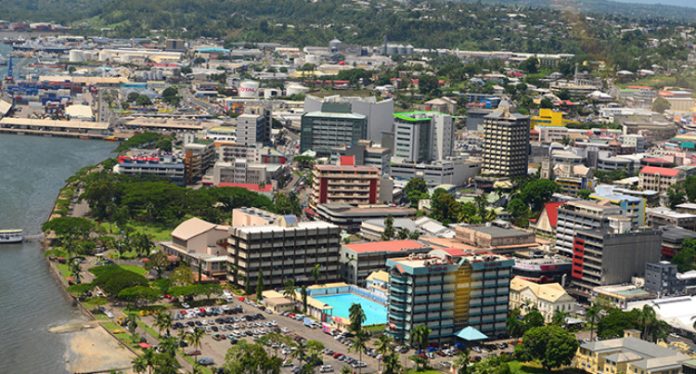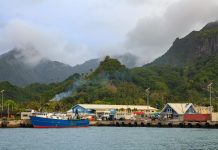Fiji was facing a debt issue before the COVID-19 pandemic and three tropical cyclones hit the country and made things worse, says the World Bank.
“For a country as exposed to external shocks as Fiji, the pre-COVID debt level was already considered on the high side,” the World Bank said in its Fiji Public Expenditure review released Tuesday.
The World Bank said a joint assessment with the International Monetary Fund (IMF) had recommended that immediate steps be taken to address the debt issue.
“A joint IMF-World Bank debt sustainability assessment prepared as part of the 2021 IMF Article IV Consultation and updated for the ongoing Fiji Recovery and Resilience Second Development Policy Operation, found that near-term risks are heightened, and that public debt is only sustainable if substantial fiscal consolidation is achieved over the medium-term. Still, at minimum sustainable consolidation levels, public debt remains above the 70 per cent Market Access Countries (MAC) benchmark over the projection horizon.
“Further, the elevated public debt generates vulnerabilities to a broad range of shocks, including from contingent liabilities that increased during the pandemic, leaving the country with limited buffers and highlighting the scale and urgency of the fiscal consolidation required.”
The World Bank said cumulative shocks drove up Fiji’s fiscal deficit and public debt, exacerbating trends that started prior to the onset of COVID-19.
“Just prior to the shocks, following a period of expansionary fiscal policy since 2014, the Government had started implementing an expenditure-based fiscal consolidation, targeting a stabilisation of capital spending, and tightening of control over current spending, which reduced spending in real terms in FY19 following a peak in FY18.
“While this trend continued with further nominal spending cuts in FY20 and FY21, more severe shortfalls in revenue and the steep fall in output drove up public spending relative to GDP and fiscal deficits.
“The fiscal deficit increased from 3.7 percent of GDP in FY19 to 11.4 percent of GDP in FY21 and is projected to have further increased to 12.0 per cent of GDP in FY22, as lagging revenue impacts coincide with continued expenditure pressures to support the economic recovery.
“The impact on the public debt trajectory is substantial, with public debt expected to have increased from a pre-crisis level of below 50 percent of GDP in FY19 to over 90 percent of GDP by the end of FY22, measurably above the upper middle-income country average and many of Fiji’s peers.”
Meanwhile, the bank recommendation for Fiji to remove zero-rating of VAT on essential items, raise VAT up from nine to 15 percent and reduce the income tax threshold from the current $30,000 to $16,000(US$15,00- US$8,000).
The report also recommended the full phasing out of sugar sector subsidies, further reduction in TELS allocations, combined with better targeting, and improved targeting of public social spending.
The World Bank also suggested simplification of personal income tax rate structure and lowering of threshold, and recommended the State tax fringe benefits the same as ordinary income, and suggested the introduction of dividend withholding tax.
The lending agency also recommended the elimination of reduced corporate income tax rates and export incentives.
In terms of applying the 15 per cent VAT on all items, including essential items, the World Bank recommended it be partially offset by an increase of the Poverty Benefit Scheme.
The World Bank also suggested extension of increased VAT rate to other goods and services, increase in excise tax on alcohol and increase in departure tax from $100 to $125 (US$50 – US$62.50), among other suggestions.
SOURCE: FIJI TIMES/PACNEWS















